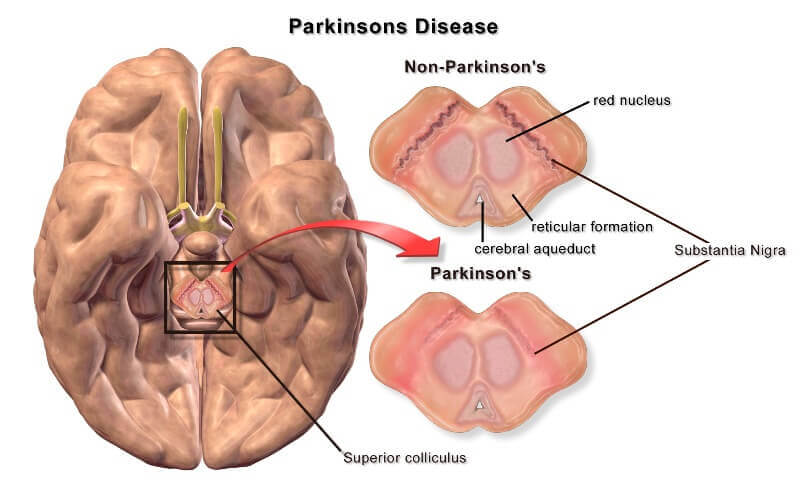A nurse is caring for a client who is newly diagnosed with Parkinson’s disease. The client states, “I have no idea why I got this.” Which of the following is the most important question the nurse should ask this client while performing the assessment?
“When did you have your last physical?”
“Do you have any family members with Parkinson’s disease?”
“What kind of work do you do?”
“How much coffee do you drink every day?”
The Correct Answer is B
Choice A Reason:
Asking about the last physical exam is important for understanding the client’s overall health history, but it is not the most critical question for assessing the risk factors specific to Parkinson’s disease.
Choice B Reason:
This is the correct answer. Family history is a significant risk factor for Parkinson’s disease. Genetic factors can play a role in the development of the disease, and knowing if any family members have Parkinson’s can help in understanding the client’s risk and planning appropriate care.
Choice C Reason:
While occupational history can provide insights into potential environmental exposures that might contribute to Parkinson’s disease, it is not as directly relevant as family history in assessing the risk of developing the disease.
Choice D Reason:
The amount of coffee consumed daily is not directly related to the risk of developing Parkinson’s disease. Some studies suggest that caffeine might have a protective effect, but this is not a primary factor in assessing the disease.

Nursing Test Bank
Naxlex Comprehensive Predictor Exams
Related Questions
Correct Answer is ["A","B","C"]
Explanation
Choice A Reason: Superficial palpation
Superficial palpation is typically performed after auscultation to avoid altering bowel sounds. It involves gently pressing on the abdomen to detect tenderness, masses, or other abnormalities. This step helps in identifying areas that may require deeper examination.
Choice B Reason: Auscultation
Auscultation is performed after inspection and before palpation to listen to bowel sounds without interference. Using a stethoscope, the nurse listens for the presence, frequency, and character of bowel sounds. This step is crucial as palpation can stimulate bowel activity, potentially leading to inaccurate findings.
Choice C Reason: Inspection
Inspection is the first step in an abdominal assessment. The nurse visually examines the abdomen for any abnormalities such as distension, scars, or discoloration. This step provides initial information about the child’s abdominal health and helps guide the subsequent steps of the assessment.
Choice D Reason: Deep palpation
Deep palpation is performed last to assess the deeper structures of the abdomen. This step involves applying more pressure to feel for masses, organ size, and tenderness. It is important to perform this step last to avoid causing discomfort or altering the findings of the other assessment steps.
Correct Answer is D
Explanation
Choice A Reason:
An N95 respirator is used for airborne precautions, not contact precautions. It is necessary for protecting against airborne pathogens like tuberculosis or COVID-19.
Choice B Reason:
Goggles are used to protect the eyes from splashes or sprays of infectious materials. While they can be part of contact precautions, they are not the primary PPE required for changing bed linen.
Choice C Reason:
A face shield provides protection against splashes and sprays to the face. Similar to goggles, it is not the primary PPE required for contact precautions when changing bed linen.
Choice D Reason:
This is the correct answer. Gloves are essential for contact precautions to prevent the transmission of infectious agents through direct or indirect contact with contaminated surfaces or materials. They protect the nurse from coming into contact with pathogens that may be present on the bed linen.
Whether you are a student looking to ace your exams or a practicing nurse seeking to enhance your expertise , our nursing education contents will empower you with the confidence and competence to make a difference in the lives of patients and become a respected leader in the healthcare field.
Visit Naxlex, invest in your future and unlock endless possibilities with our unparalleled nursing education contents today
Report Wrong Answer on the Current Question
Do you disagree with the answer? If yes, what is your expected answer? Explain.
Kindly be descriptive with the issue you are facing.
